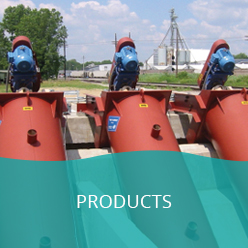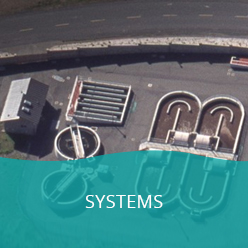Every year, municipal wastewater treatment plants do what they can to become more efficient. Efficiency helps keep costs down, which makes the district’s residents happy. At the same time, these plants cannot lose sight of the goal of cleaning wastewater to meet government standards. These are the three challenges municipal wastewater treatment plants face with tips on how to handle them.
Newer Contaminants Are Harder to Remove
Today’s use of medications like birth control and antidepressants has increased. Hormones are being found in aquatic creatures at alarming levels. These prescription medications are hard to filter from wastewater. Even with top-quality equipment a certain level of these medications gets through and is returned to water sources like rivers and lakes.
The U.S. Geological Survey studied fish located about five miles downstream of a water treatment plant. Silt and water samples were also taken. Several antidepressants were found in the water and silt. The same happened with the tissue samples they took from fish. One thing was concerning, the fish had typically had higher levels of the antidepressants than the silt or water did.
The same is being found with one hormone found in birth control pills. A Swedish study found ethinyl-estradiol in roach, salmon, and trout. The fish that tested positive for this synthetic hormone struggle with breeding, which can deplete fish populations. It could diminish the number of fish in the rivers and oceans, which reduces the amount of fish available for food.
Expanding Populations and Business Growth Are Straining Systems
Cities and suburbs are growing faster than many municipal wastewater treatment systems can handle. Many of the nation’s wastewater treatment plants were designed decades ago. They’re not equipped for today’s residential and business usage.
In Huntingburg, Indiana, the city’s wastewater treatment plan is designed for up to 2 million gallons per day. Right now, the average daily flow is 1.4 million gallons. There are tanks to handle overflow on days they happen, but a study found that those tanks could only hold overflow from a day or two. At that point, wastewater goes into lagoons where bleach is added and it’s mixed with treated wastewater and released. If excessive amounts of wastewater happened multiple days, it could be disastrous. Growth is an issue that the city is working hard to address.
Vermont is a state well-known for its craft brewing industry. Some independent beer makers are feeling the strain of older wastewater plants. In Morrisville, two local brewers are worried about the impact of new wastewater rates they face. These rates will cost the breweries upwards of $16,000 per year. Far more than they can afford, but the municipal wastewater treatment plant is overburdened by the wastewater coming from these breweries, too. Stowe’s Alchemist Brewery worked with experts to build their own wastewater system to lessen the load on their town’s wastewater system. It’s something more companies may need to consider.
Outdated Equipment Fails More Often and Uses More Energy
Older equipment does use a lot more energy than today’s models. Upgrading may cost some money, but the savings in energy bills quickly pays for the expense of upgrading equipment. Models are designed to run with minimal interruption and automatically adjust flow rates without the need for a person watching monitors and making changes.
Great Neck Water Pollution District spent $13 million on upgrades. It’s expected that the upgrades will result in $150,000 per year in heating costs and more than $400,000 in savings for utilities. In several years, the upgrades will have been paid off through those savings. It’s a win-win for both the residents and businesses in the area and the water treatment plant.
Other innovative upgrades to consider are systems that convert the gases produced during wastewater treatment into heating fuel for the plant. Some systems reduce energy costs by tapping into solar energy with the installation of solar panels. These are all ideas that municipal wastewater treatment plants are using to boost efficiency and reduce energy.
Upgrades can be affordable investments. Lakeside Equipment has a package headworks system that is pre-engineered and pre-assembled to reduce engineering, installation, and excavation costs. The stainless steel design lowers the risk of corrosion. You can have this cost-effective system customized to suit your needs.
We’re ready to help your municipal wastewater treatment plant boost efficiency and performance. We have parts available if your system requires repairs. Our engineers at Lakeside Equipment also help with plant upgrades and efficient, cost-effective designs. Give us a call and let us know how we can assist you.








